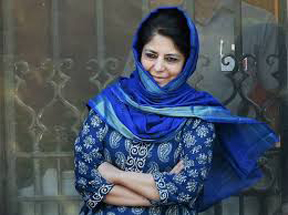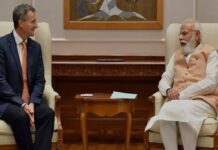 SRINAGAR: Eighty four security camps and bunkers were removed in Jammu and Kashmir since January 2009 with the highest number of 22 such structures vacated in 2010 – the year when the Valley witnessed a massive agitation leaving over 120 persons dead.
SRINAGAR: Eighty four security camps and bunkers were removed in Jammu and Kashmir since January 2009 with the highest number of 22 such structures vacated in 2010 – the year when the Valley witnessed a massive agitation leaving over 120 persons dead.
Most of the camps and bunkers were removed from summer capital Srinagar during the previous NC-Congress regime, while only six such structures were vacated since the PDP-BJP government came to power in the state, Chief Minister Mehbooba Mufti, who holds the Home Portfolio, said in a written reply in the Assembly here.
Replying to a question by opposition National Conference leader Omar Abdullah, the Chief Minister said a total of 258 camps and 18 bunkers were existing in the Valley as on January 1, 2009 – the year when Omar took over as the Chief Minister.
“The removal of remaining bunkers and camps of Army and central paramilitary forces will depend upon the review of security situation in consultation with all stakeholders, on case to case basis,” Mehbooba said.
She said Srinagar accounted for the highest number of 117 camps and 11 bunkers followed by Sopore township of Baramulla district (35 camps), Kulgam (27 camps), Pulwama (23 camps, three bunkers), Budgam district (20 camps, one bunker), Anantnag (13 camps), Bandipora (eight camps, one bunker), Kupwara (five camps, two bunkers), Shopian (five camps), Baramulla (four camps) and Ganderbal (one camp).
Of these, 84 structures – 69 camps and 14 bunkers – were removed from towns and cities with effect from January 1, 2009, the Chief Minister said.
She said the highest number of 41 camps and 10 bunkers were removed from Srinagar followed by eight in Kulgam, seven camps in Sopore township, five camps each in Pulwama and Shopian districts, two camps and one bunker each from Bandipora and Kupwara districts.
Among the bunkers removed included the one in Handwara town of Kupwara district where five persons, including a woman were killed in security forces firing following massive protests over the alleged molestation of a girl by a soldier in April – the month when Mehbooba took over as the Chief Minister of the state. Giving year-wise break-up, the Chief Minister said the highest number of 22 camps and bunkers were removed in 2010 followed by 19 next year.
Fifteen such bunkers and camps were removed in 2012, 11 in 2009, eight in 2013, five in 2015, three in 2014 and one in 2016, she said.
Omar Abdullah-led government started the process of removal of bunkers from various parts of the Valley especially Srinagar to reduce the footprints of security forces – a recommendation of the all-party parliamentary delegation that visited the state in September 2010 to take stock of the situation following the death of over 120 persons in street protests.
Mehbooba said while there was no security camp or bunker present in Ladakh region, no camp or bunker was removed from Budgam and Ganderbal districts till date.
Of the eight camps in Kulgam district, four were removed in 2009 and three in 2010, the Chief Minister said.
Mehbooba said only three camps or bunkers were removed in the last year of National Conference led government in 2014.
After the formation of PDP-led government, five camps or bunkers were removed – two from Srinagar and one each in Awantipora township of Pulwama, Kupwara and Sopore township of Baramulla district in 2015, she said.
In 2011, a total of 19 camps or bunkers were removed – 14 from Srinagar, two from Shopian and one each from Sopore, Awantipora and Kulgam, she said adding, 15 bunkers or camps were removed in 2012 which included 12 from Srinagar, two from Sopore and one from Pulwama.
Eight camps and bunkers were removed in 2013 – two each from Srinagar, Sopore and Shopian and one each in Kupwara and Bandipora districts, the Chief Minister said.
She said of the 11 bunkers or camps removed in 2009, Srinagar witnessed removal of five such structures followed by Kulgam (four) and Anantnag and Pulwama (one each).–PTI






